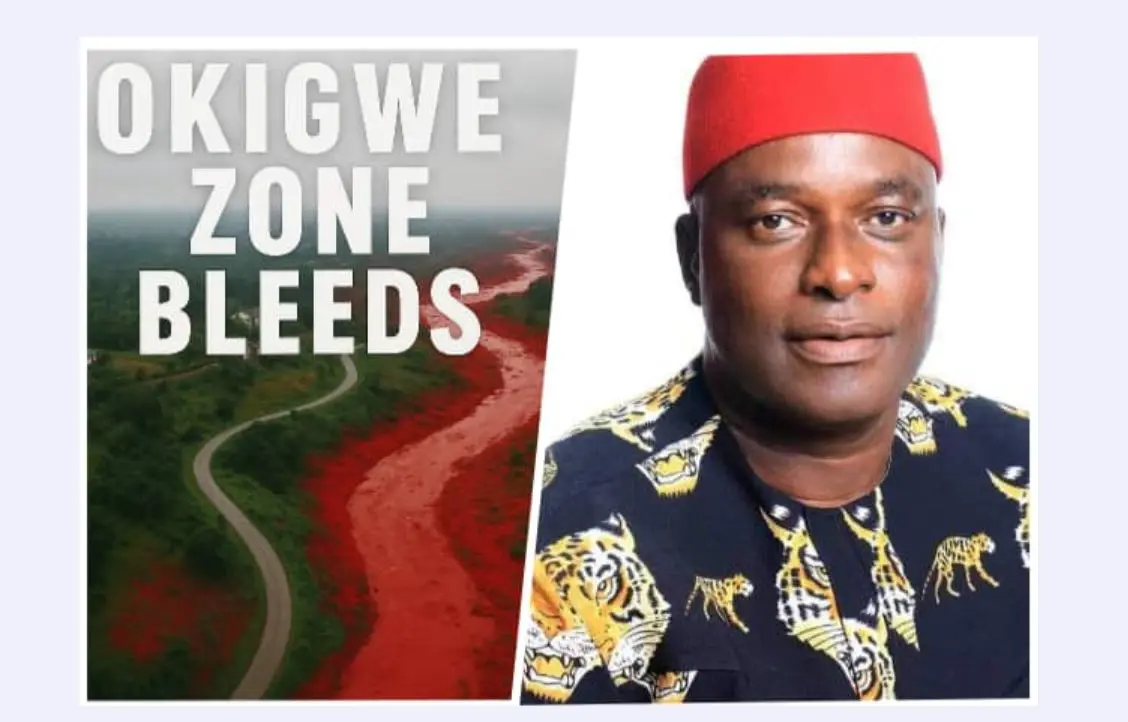NEWS
Achonu Condemns Abduction of Ex-Lawmaker in Okigwe

In a deeply disturbing incident that has sent shockwaves through Imo State, Senator Athan Nneji Achonu, the 2023 Labour Party Governorship Candidate, has strongly condemned the abduction of Hon. Ngozi Ogbu, a former legislator from Okigwe. The abduction is particularly heartbreaking as it occurred just as Ogbu was preparing to bury his late mother, whose body remains in the mortuary awaiting a proper farewell. Senator Achonu described the incident as a direct assault on Igbo values, culture, and humanity, calling for Ogbu’s immediate and unconditional release. The senator’s impassioned plea underscores a growing frustration with the relentless cycle of violence and criminality in Imo State, a situation that has transformed parts of the state into a hotbed of insecurity, forcing residents to live in a constant state of fear and uncertainty. The tragedy of the abduction is compounded by the profound cultural significance of a proper burial in Igbo tradition, a sacred rite now tragically interrupted.
The kidnapping of Hon. Ngozi Ogbu is the latest in a series of violent incidents that have plagued the Okigwe area. Police have confirmed the abduction and stated that the perpetrators are suspected to be members of a pro-Biafra group. A viral video reportedly released by the kidnappers shows the former lawmaker pleading for his life, while an armed man stands beside him. In the chilling clip, the armed individual claims to be from a group called the “Biafra Liberation Army” and states that they were “heartbroken” and “pushed into abducting the former lawmaker.” They are reportedly not demanding a ransom but rather the withdrawal of security operatives from an area in Okigwe known as “White House.” This alleged motive adds a complex political dimension to the crime, revealing a deep-seated grievance against the government’s security operations and its alleged collaboration with a terror kingpin. Police authorities in Imo State have since deployed tactical teams to rescue the lawmaker, while the state government has been condemned for its perceived inability to protect its citizens from these armed groups.
In his impassioned appeal, Senator Achonu invoked the core tenets of Igbo wisdom and culture, which place a sacred duty on the living to honor their dead. In Igboland, a proper burial is not merely a formality; it is a vital rite of passage that ensures the deceased’s spirit transitions peacefully into the ancestral realm. The process often involves a first burial (the interment) followed by a more elaborate second burial at a later date, a ceremony filled with rituals, feasting, and cultural displays. Failure to perform these rites is believed to cause a restless spirit to wander and, in some cases, bring misfortune upon the living. For Hon. Ngozi Ogbu, the tragic timing of his abduction means he is being denied the fundamental dignity of laying his mother to rest and fulfilling his filial duty. Senator Achonu’s direct plea, “I appeal directly to those holding Hon. Ngozi Ogbu, whose aged mother lies in the mortuary awaiting burial, to release him immediately,” is a powerful call to the humanity of the abductors, reminding them of a cultural principle that transcends political grievances and criminal motives.
While the immediate focus is on Hon. Ogbu’s safe return, the incident highlights a much larger problem of insecurity and a breakdown of social order in the South-East. Experts and political observers point to a myriad of factors fueling the crisis, including widespread unemployment, poverty, social injustice, and the proliferation of firearms. Many of the young people involved in these criminal activities are believed to be driven by desperation and a sense of hopelessness, often becoming tools for criminal gangs or political interests. Senator Achonu’s challenge to the government “what government are we even referring to? A government whose leaders live and work from Abuja…” points to a profound disconnect between the political elite and the citizens they are meant to serve. This is a crucial “human insight” as it speaks to the frustrations of ordinary citizens who feel abandoned by their leaders. The senator’s final call to action for an urgent and comprehensive security overhaul, stronger intelligence networks, and community policing is a recognition that until the root causes are addressed and public officials are held accountable, the cycle of violence will continue. The senator’s concluding words, “E jiri mara Igbo bụ nkwado na nkwanye ùgwù, what defines us as a people is solidarity and respect. Let us not betray our own identity by turning against ourselves,” is a poignant reminder of the cultural values at stake and the need for the people to come together to fight this internal enemy.
